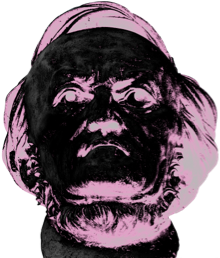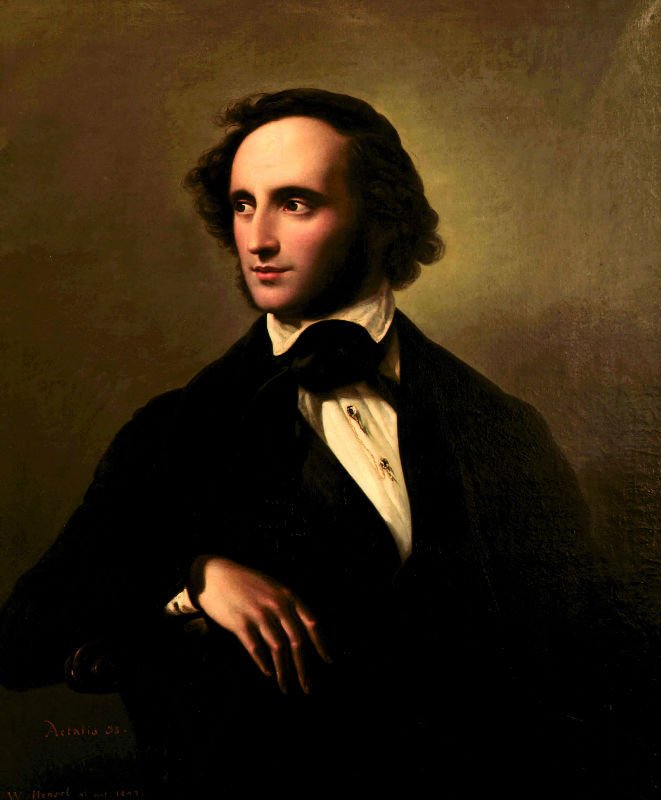Without Felix Mendelssohn (1809-1847), there would be no Richard Wagner. By this I mean two things.
First, Wagner was a man who always needed to be in conflict with something. That “something” was often Jews, usually Mendelssohn in particular. Why Mendelssohn? As an exceptional musician and thoroughly cultured German, Mendelssohn was the glaring, unavoidable exception to all of Wagner’s misbegotten theories about Jewish people, particularly 1) that they could only learn to imitate German art and culture, and 2) these imitations would infect and dilute German culture. This conflict, as manufactured and hateful as it was, constituted an important part of Wagner’s artistic process. Mendelssohn was not his muse, but something like it - an artistic and intellectual adversary (perhaps imagined) to wrestle with.
Second, Wagner could not have become Wagner without Mendelssohn’s contributions to Leipzig and German musical life. Mendelssohn became the music director of the Gewandhaus Orchestra in 1835, and in 1841 he founded the Leipzig Conservatory. In his role as music director at the Gewandhaus he was an early champion of “historical music,” most famously the Bach revival. Mendelssohn’s efforts to build institutions and start the process of canonization were a prerequisite for Richard Wagner’s work.
Wagner was born and raised in Leipzig. He almost certainly saw Mendelssohn conduct the Gewandhaus Orchestra in such seminal works as Bach’s St. Matthew Passion and the Beethoven Symphonies, which had an indelible impact on Wagner (“Beethoven’s Symphony No. 9 became the mystical goal of all my strange thoughts and desires about music”). Even if Mendelssohn was not conducting, Wagner certainly heard these pieces because of Mendelssohn. Performing such “historical” music was not the norm at the time; Mendelssohn changed that. Mendelssohn also engaged Franz Liszt and Clara Schumann as soloists and performed the music of Robert Schumann and Carl Maria von Weber, each of whom had a significant impact on or relationship with Wagner.
For all of this, Wagner could have loved and admired Mendelssohn, but admiration is easily perverted into envy and resentment. Mendelssohn had the sort of education that Wagner no doubt wished he had. Mendelssohn grew up in a wealthy, influential, and cultured household in Berlin, which became the pre-eminent salon in the city for artists and intellectuals. Mendelssohn was befriended and mentored by Goethe himself, heard first hand accounts of South America from Alexander von Humbolt, and attended Hegel’s lectures at the University of Berlin. While Mendelssohn was no practitioner of Gesamtkunstwerk, he not only composed but was also a talented painter and published a translation of Terence’s Andria. And he is perhaps the only composer who could have exceeded Wagner in his knowledge of history and philosophy. It is easy to imagine Wagner, who came from a family of modest means, resenting Mendelssohn not only for being Jewish, but for his exceptional education, comprehensive artistic talents, and magnificent contributions to German culture.
Mendelssohn’s Viola Sonata in C Minor, MWV Q 14, was completed on February 14, 1824, eleven days after his fifteenth birthday. The Viola Sonata is one of the last pieces we can call a “student composition” of Mendelssohn; he certainly hadn’t found his compositional voice, which burst forth in the String Octet (1825). There are many who consider that mature compositional voice generic, formulaic, uninspired, and easy-listening. I absolutely disagree with them, except on the charge of easy listening, which I intend as a compliment. The Viola Sonata, however, subverts expectations. It is not typical Mendelssohn.
Here is a young composer rapidly approaching his mature style, but still experimenting with form in a way which he rarely did again. As for content, this sonata has a turgid anxiety contrasted with a disturbing hollowness that one doesn’t find again in Mendelssohn’s instrumental music until the String Quartet in F minor, Op. 80, written at the end of his short life.
Violists rarely perform Mendelssohn’s Viola Sonata. Perhaps this is because the Viola Sonata was not published until 1966, and it takes time for works to catch on and establish themselves in the repertoire. But 1966 was 58 years ago. It does not take 58 years. Or perhaps it is because the viola is not given a preeminent role and the most beautiful music in the sonata, the slow variation of the third movement, is three minutes of magical solo piano. Regardless of the reason, it is consternating. Here, finally is a piece actually written for the viola by an A-list composer - and yet violists still don’t play it! Well, this violist does, and hopes to make a compelling case for it with this recording. On to the music.
The first movement is a roiling sonata form in the roiling key of C minor, with a slow introduction that has all the pent up tension of the rubber band just before Felix launched it into Fanny’s head.
The second movement is a scherzo in ABA form. Imagine Cerberus first as a puppy, and then as a fully grown, ferocious beast - this is the A section. The B section is Orpheus soothing the Hound of Hades to sleep. It is otherworldly. Four austere, sinewy, chromatic notes in the piano lead us into a Chorale which is a balm for weary souls.
The third movement is a Theme and Variation, but the theme is actually the theme of the A section of the 2nd movement! Here it is slower, in a different meter, creatively harmonized, and expanded, but the resemblance is unmistakable. The ensuing variations put the theme through all sorts of…variations: pointillistic Tom-and-Jerry games, ghostly arabesques, a military march, and finally the aforementioned slow variation, Variation 8, with its extended piano solos presaging Chopin. One can hear the moonlight streaming down to earth. There is a crack in the harmony, pulling us back from C major to C minor, out of which the viola cadenza emerges and launches headlong into a coda which would be a fitting soundtrack for a mad dash Buster Keaton sequence.
Daniel Orsen
January, 2023

